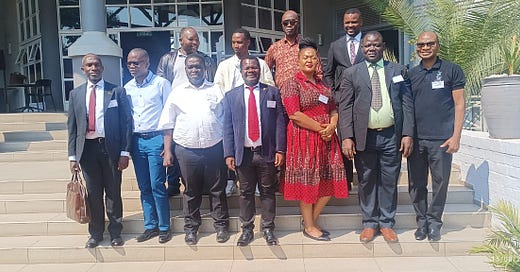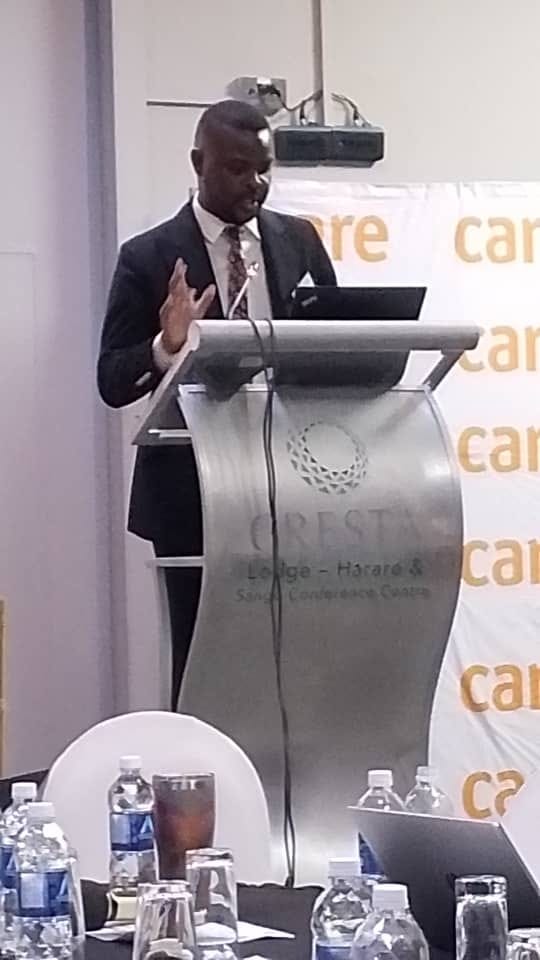Malawi Presents Ambitious SADC Development Plan at Regional Dialogue
As the dialogue concluded, it was clear that Malawi's comprehensive approach to RISDP implementation could serve as a model for other SADC member states.
HARARE, Zimbabwe— In a significant step towards regional development, Malawi unveiled its comprehensive action plan for implementing the Southern African Development Community (SADC) Regional Indicative Strategic Development Plan (RISDP) 2020-2030 at the 4th Regional Dialogue for Non-State Actors, writes Winston Mwale.
The event, held in Harare with a virtual component, saw Wales Chigwenembe, Program Manager for the COVID-19 Response Mechanism at ActionAid Malawi, present the country's strategies and achievements to date.
Chigwenembe began by highlighting Malawi's progress since the previous dialogue.
"We've successfully domesticated the RISDP through our Malawi Vision 2063 and the First Ten Year Implementation Plan," he reported.
This integration marks a crucial step in aligning national goals with regional objectives.
The presentation detailed several key actions taken by Malawi. Notably, the country relaunched its SADC National Committees (SNCs) and conducted an orientation for chairpersons and members of SNC subcommittees in August 2021, involving 25 participants.
Chigwenembe emphasized the financial aspects of Malawi's efforts.
"We completed an RISDP costing exercise in October 2021 and submitted our consolidated national costing template to the Secretariat the following month," he said.
This financial planning demonstrates Malawi's commitment to realistic implementation of the RISDP.
The country's progress extends beyond planning stages. Chigwenembe reported the successful roll-out of Change Project Phase 1 in 2021 and the securing of funding for Phase 2. These projects, while not detailed in the document, likely relate to RISDP implementation strategies.
Engagement with non-state actors (NSAs) has been a priority for Malawi.
"We've conducted four RISDP regional and national dialogues for NSAs since 2021," Chigwenembe stated.
This engagement strategy aims to ensure broad participation in the RISDP implementation process.
The presentation highlighted the efforts of various organizations within Malawi.
The Malawi Economic Justice Network (MEJN) conducted orientations for members of parliament and other NSAs on the SADC model law. Meanwhile, the Malawi Health Equity Network (MHEN), through the Universal Health Coverage Coalition, engaged in policy and budget tracking related to regional policies like the Abuja declaration.
Chigwenembe also noted MEJN's initiative to collect workplans from NSAs on RISDP for consolidation, aiming to support coordination efforts.
Additionally, he mentioned the AfricaBrief online media's role in covering stories to raise visibility of RISDP-related interventions.
Moving to short-term goals, Chigwenembe outlined Malawi's plans for the period leading up to August 2024.
A key focus is addressing the lack of coordination among stakeholders.
"We plan to undertake follow-up orientations of Technical Subcommittees through virtual quarterly meetings," he explained.
Other short-term actions include developing and implementing joint work plans by NSAs interested in supporting RISDP work, conducting a mapping exercise of NSAs implementing RISDP activities, and strengthening local SADC Youth Forums.
Gender mainstreaming and awareness campaigns for the SADC NSA Engagement strategy are also on the agenda.
The National Youth Council, Parliament, CONGOMA, MEJN, MHEN, MISA Malawi, Y+ Youth Network, NGO GCN, and the Malawi Confederation of Chambers of Commerce and Industry (MCCCI) are all slated to play roles in these initiatives.
Addressing the lack of monitoring, Chigwenembe outlined plans to develop an M&E framework for the RISDP and conduct orientations on monitoring and evaluation at the national level.
The Ministry of Foreign Affairs, Ministry of Finance, and other entities will be involved in strengthening the tracking of RISDP implementation.
Communication and visibility of RISDP activities emerged as another priority. Plans include building social media visibility, producing stories across various media platforms, and strengthening media representation in SADC committees.
The Ministry of Information and MISA Malawi will play key roles in these efforts.
Long-term goals extending to 2030 were also presented.
These include developing a fundraising strategy, lobbying for financing of RISDP activities, and creating a tracking framework for allocation and expenditure on RISDP initiatives.
"We aim to conduct progress reviews of the implementation of MIP1, enhance the efficacy of SNCs, and consolidate national intervention reports for easy follow-up," Chigwenembe stated.
The National Planning Commission will be instrumental in these long-term monitoring efforts.
The presentation concluded with a series of recommendations. Chigwenembe called for faster implementation and adoption of RISDP interventions, improved coordination efforts, and adequate financial support to promote RISDP initiatives.
He stressed the need for feedback to the NSA Engagement mechanism and the development of an RISDP M&E plan at the national level.
"We note the slow implementation and adoption of RISDP interventions in the country, stagnant coordination efforts by stakeholders, and lack of adequate financial support," Chigwenembe said.
He added that the lack of feedback to the NSA Engagement mechanism and the absence of an RISDP M&E plan at the national level were areas of concern.
In response to these challenges, Malawi's delegation called upon the SADC Secretariat and country coordinating structures to accelerate the full implementation of the RISDP agenda.
They emphasized that this was crucial "for the betterment of SADC citizens."
The recommendations put forward by the Malawi team included:
1. Developing an RISDP M&E framework at the national level.
2. Mapping key implementers from the NSA sector who are contributing to RISDP activities.
3. Activating SADC national committees for effective implementation of the SADC agenda.
4. Encouraging civil society organizations to conduct budget analysis and tracking on RISDP financing.
These recommendations aim to address the identified gaps and strengthen Malawi's implementation of the RISDP 2020-2030.
The presentation by Chigwenembe and the Malawi team at the 4th Regional Dialogue for Non-State Actors on the SADC RISDP 2020-2030 represents a significant step in the country's commitment to regional development goals.
By outlining both achievements and challenges, along with concrete plans for the future, Malawi has demonstrated its dedication to the SADC vision of a shared future within a regional community.
As the dialogue concluded, it was clear that Malawi's comprehensive approach to RISDP implementation could serve as a model for other SADC member states.
The coming years will be crucial in determining the success of these initiatives and their impact on the lives of citizens across the Southern African region.





